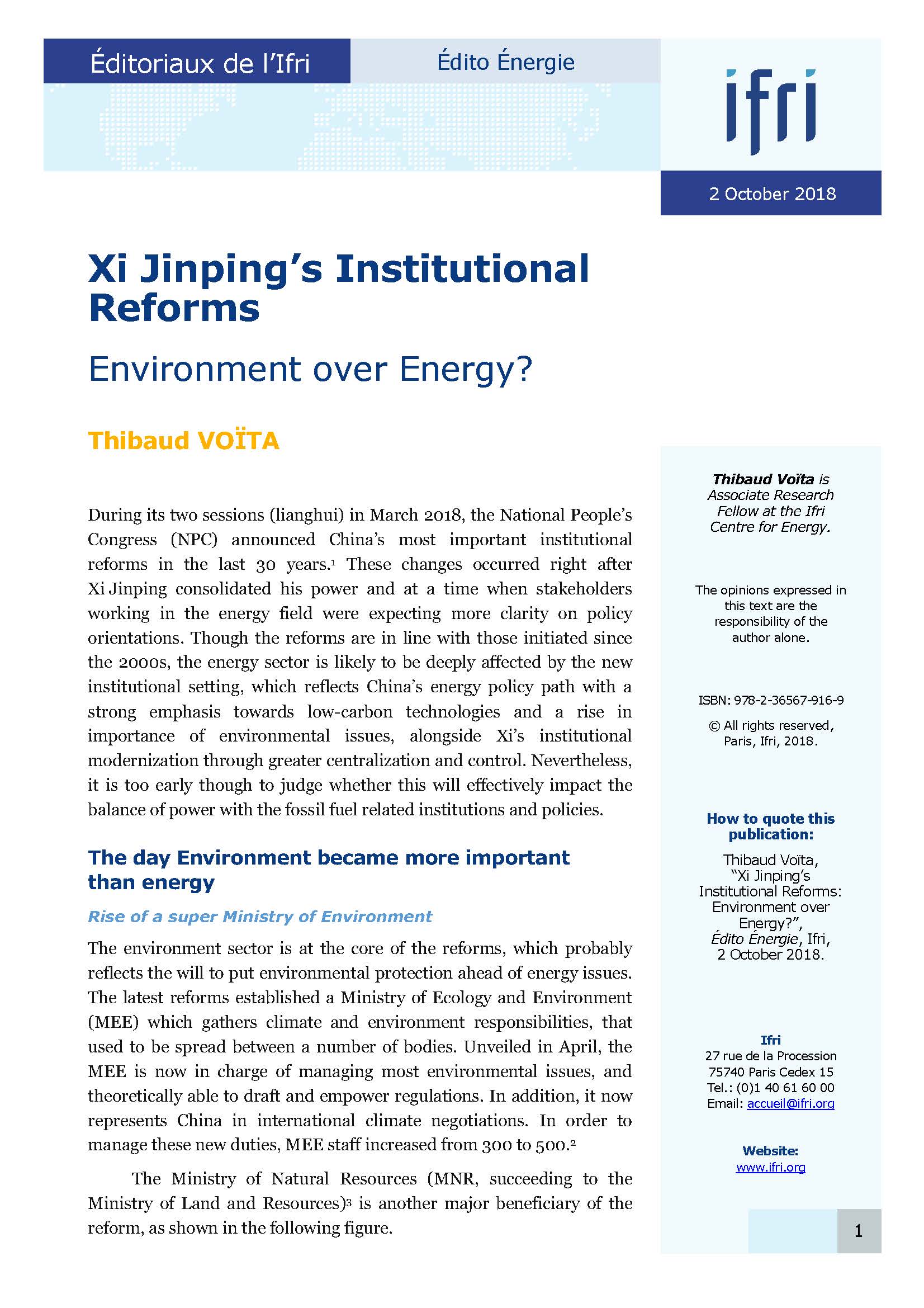Xi Jinping’s Institutional Reforms: Environment over Energy?

During its two sessions (lianghui) in March 2018, the National People’s Congress (NPC) announced China’s most important institutional reforms in the last 30 years. These changes occurred right after Xi Jinping consolidated his power and at a time when stakeholders working in the energy field were expecting more clarity on policy orientations.
Though the reforms are in line with those initiated since the 2000s, the energy sector is likely to be deeply affected by the new institutional setting, which reflects China’s energy policy path with a strong emphasis towards low-carbon technologies and a rise in importance of environmental issues, alongside Xi’s institutional modernization through greater centralization and control. Nevertheless, it is too early though to judge whether this will effectively impact the balance of power with the fossil fuel related institutions and policies.
The day Environment became more important than energy
The environment sector is at the core of the reforms, which probably reflects the will to put environmental protection ahead of energy issues. The latest reforms established a Ministry of Ecology and Environment (MEE) which gathers climate and environment responsibilities, that used to be spread between a number of bodies. Unveiled in April, the MEE is now in charge of managing most environmental issues, and theoretically able to draft and empower regulations. In addition, it now represents China in international climate negotiations. In order to manage these new duties, MEE staff increased from 300 to 500.

Available in:
Regions and themes
ISBN / ISSN
Share
Download the full analysis
This page contains only a summary of our work. If you would like to have access to all the information from our research on the subject, you can download the full version in PDF format.
Xi Jinping’s Institutional Reforms: Environment over Energy?
Related centers and programs
Discover our other research centers and programsFind out more
Discover all our analysesFinancial Tools for Boosting Resilience of CRM Value Chains and Strategic Stockpiling
Critical Raw Material (CRM) value chains are more vulnerable than ever and entire vital industries in Europe are now at risk if supplies are not secured through strategic and urgent actions, given mounting geopolitical confrontation, resource nationalism, growing demand and limited supply increase.
Placing the EU on a Warfare Footing: Energy and Raw Materials Priorities for 2026
The year 2025 has confirmed that one must prepare for much worse in the field of geopolitics and geoeconomics as the intensity and frequency of shocks increase and as the European Union (EU) has no more stable flanks now that crises with the United States (US) become so frequent and reveal a systemic rift. In the world, barriers to trade multiply and dependencies are weaponized.
Brazil One Year Away from the October 2026 General Elections
Brazil’s general elections will be held on October 4, 2026, to elect the president, vice-president, members of the National Congress, governors, deputy governors and state legislative assemblies. For the presidential and gubernatorial elections, a second round will be held on October 25 if no candidate obtains a majority of the votes in the first round.
COP30: An Inflection Point for Climate Action and Governance
The 30th Conference of the Parties (COP30), opening in Belém, Brazil, on November 10th 2025, convenes at a perilous moment.










